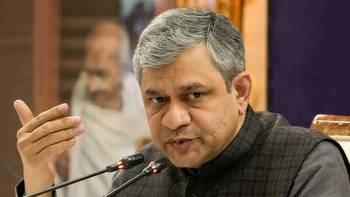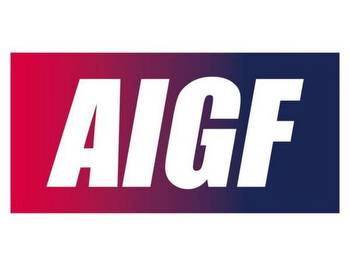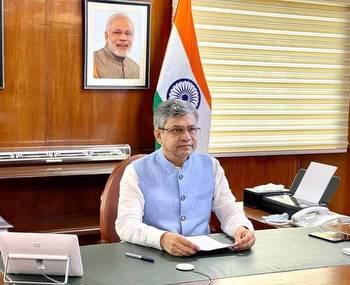India’s Evolving Online Gaming Laws

Online gaming, betting, and gambling are activities that involve playing games or placing bets on the outcome of events using the internet or other digital platforms. These activities can be classified into two broad categories: games of chance and games of skill. Games of chance are those where the outcome is determined by random factors, such as roulette, slots, lottery, etc. Games of skill are those where the outcome is influenced by the players’ ability, knowledge, strategy, etc., such as chess, poker, rummy, etc.
In India, online gaming, betting, and gambling are regulated by a complex and diverse legal framework that varies across states and central laws. The Indian Constitution grants the power to legislate on ‘betting and gambling’ to the state governments under Entry 34 of List II (State List). However, the central government also has some authority to regulate certain aspects of online gaming, betting, and gambling under Entry 97 of List I (Union List), which covers any matter not enumerated in List II or List III (Concurrent List). Moreover, any central laws, such as the Information Technology Act, 2000 (IT Act), the Foreign Exchange Management Act, 1999 (FEMA), the Indian Penal Code, 1860 (IPC), etc., also have implications for online gaming, betting, and gambling activities.
The legal status of online gaming, betting, and gambling in India depends on whether they are considered games of chance or games of skill. Games of chance are generally prohibited by most state laws, except in some states that allow licensed land-based casinos or lotteries. Games of skill are generally permitted by most state laws, except in some states that have recently banned them or imposed restrictions on them. However, there is no clear and uniform definition of what constitutes a game of skill or a game of chance in India. The Supreme Court of India has held that games of skill are those where ‘success depends principally upon the superior knowledge, training, attention, experience, and adroitness of the player’. However, the Supreme Court has also clarified that a game may be predominantly a game of skill, but may also contain an element of chance. Therefore, the determination of whether a game is a game of skill or a game of chance depends on the facts and circumstances of each case.
The online gaming, betting, and gambling industry in India has witnessed significant growth and innovation in recent years. According to a report by KPMG and Google, the online gaming market in India was valued at USD 1.1 billion in 2020 and is expected to reach USD 2.8 billion by 2023. The online gaming market comprises various segments such as casual games, fantasy sports, e-sports, card games, etc., each having different user bases, business models, and regulatory challenges. The online gaming industry has also attracted significant investments from domestic and foreign players, such as Dream11, Paytm First Games, Nazara Technologies, Tencent Holdings, etc.
However, the online gaming industry also faces several legal risks and uncertainties due to the lack of a clear and consistent regulatory framework at the central and state levels. The online gaming industry has been subject to various judicial challenges.
Recent Developments in Online Gaming Laws in India
In the past few years, there have been several developments in online gaming laws in India. Some of these developments are discussed below.
At the central level, the Ministry of Electronics and Information Technology (Meity) has released draft amendments to the IT (Intermediary Guidelines and Digital Media Ethics Code) Rules, 2021 (IT Rules) in relation to online gaming for public consultations. The IT Rules are applicable to intermediaries, publishers of news and current affairs content, and publishers of online curated content. The draft amendments aim to regulate online gaming platforms that offer games for money or other stakes, such as fantasy sports, rummy, poker, etc. The draft amendments propose the following key changes:
a. Online gaming platforms will have to register with Meity as publishers of online curated content and comply with the Code of Ethics and the grievance redressal mechanism prescribed under the IT Rules.
b. Online gaming platforms will have to obtain a valid license or permission from the appropriate authority for offering games for money or other stakes.
c. Online gaming platforms will have to implement a self-regulatory mechanism, including a self-regulatory body and an oversight mechanism, to ensure compliance with the Code of Ethics and the IT Rules.
d. Online gaming platforms will have to verify the age and identity of their users through a know-your-customer (KYC) process and ensure that no child is allowed to access or play games for money or other stakes.
e. Online gaming platforms will have to display information such as the terms and conditions, rules of the game, the probability of winning, amount of the stake, manner of prize distribution, etc., in a clear and transparent manner on their websites or applications.
f. Online gaming platforms will have to take measures to prevent addiction, fraud, money laundering, cheating, etc., among their users and report any suspicious or unlawful activity to the relevant authorities.
The draft amendments were open for public comments till January 31, 2023. The online gaming industry has welcomed the draft amendments as a positive step towards creating a uniform and conducive regulatory framework for online gaming in India. However, some stakeholders have also raised concerns regarding the feasibility and practicality of some of the proposed requirements, such as obtaining licenses from multiple states, verifying the age and identity of millions of users, etc.
On April 06, 2023, Meity notified the Online Gaming Rules as amendments to the IT Rules. The Online Gaming Rules largely incorporate the draft amendments with some modifications. The Online Gaming Rules provide that:
g. Online gaming platforms will have to register with Meity within 3 months from the date of notification of the rules or commencement of their operations, as rules contemplating registration shall come effective after 3 months from the commencement of the Information Technology (Intermediary Guidelines and Digital Media Ethics Code) Amendment Rules, 2023.
h. Online gaming platforms will have to obtain a license or permission from the state government where they are offering games for money or other stakes. If there is no such state law or authority, they will have to obtain a license or permission from Meity.
i. Online gaming platforms will have to be members of a self-regulatory body registered with Meity. The self-regulatory body will be responsible for monitoring and ensuring compliance with the Code of Ethics and the IT Rules, and resolving grievances of users and complainants.
j. Online gaming platforms will have to verify the age and identity of their users through a KYC process and ensure that no child is allowed to access or play games for money or other stakes.
k. Online gaming platforms will have to display information such as the terms and conditions, rules of the game, the probability of winning, amount of the stake, manner of prize distribution, etc., in a clear and transparent manner on their websites or applications, and obtain consent from the users before allowing them to play.
l. Online gaming platforms will have to take measures to prevent addiction, fraud, money laundering, cheating, etc., among their users and report any suspicious or unlawful activity to the relevant authorities.
The Online Gaming Rules are expected to bring more clarity and certainty to the online gaming industry in India and create a level playing field for all stakeholders. However, some challenges may still remain in terms of implementation and enforcement of the rules, especially in relation to cross-border transactions, data protection, taxation, etc.
The Advertising Standards Council of India (ASCI) introduced guidelines for real-money gaming advertising in order to make them safer and more responsible in 2020. The guidelines require advertisers to disclose the financial and addiction risks of online gaming, avoid targeting minors or depicting them as players, avoid presenting online gaming as an income opportunity or an alternative employment option, and avoid suggesting that online gaming makes a person more successful.
However, The Ministry of Information and Broadcasting issued an advisory on June 13, 2022, to print, electronic and digital media to refrain from advertising online betting platforms.
The advisory was issued because online betting is illegal in most parts of the country and poses significant financial and socio-economic risks for consumers, especially youth and children. The advisory also stated that advertisements of online betting are misleading and do not conform to the Consumer Protection Act 2019, Advertising Code under the Cable Television Networks Regulation Act 1995, and advertisement norms under the Norms of Journalistic Conduct laid down by the Press Council of India¹². The advisory advised online and social media, including the online advertisement intermediaries and publishers, not to display such advertisements in India or target such advertisements towards the Indian audience including TV channels and digital media.
Consequently, what followed in 2023 was that Meity published the Information Technology (Intermediary Guidelines and Digital Media Ethics Code) Amendment Rules, which obliterated the dichotomy of ‘game of chance’ and ‘game of skill’ and hence incorporated within the ambit of what was enumerated as “online game”, any game ‘that is offered on the Internet and is accessible by a user through a computer resource if he makes a deposit with the expectation of earning winnings’. It has simplified the expression hence any underlying confusion. It has also broadened the definition of ‘intermediary’ offering or granting access to the contemplated ‘online game’.
Hence, the advertisement of any entity providing online games, regardless of being a ‘game of chance’ or ‘game of skill’, the entity needs to be registered and comply with the terms of the 2023 rules in addition to the advertisement guidelines of 2020 & 2022. So, the advertisement of the same has to comply with the trilogy of guidelines; i.e. 2020, and 2022 guidelines of advertisement and IT Amendment Rules of 2023 incorporated in The Information Technology (Intermediary Guidelines and Digital Media Ethics Code) Rules, 2021.
Conclusion
Online gaming, betting, and gambling are emerging as lucrative and popular forms of entertainment and business in India. However, they are also subject to various legal risks and uncertainties due to the lack of a clear and consistent regulatory framework at the central and state levels. The recent developments in online gaming laws in India indicate a trend towards more regulation and licensing of online gaming activities, especially those involving money or other stakes. However, some challenges may still remain in terms of defining games of skill and games of chance, harmonizing state laws with central laws, ensuring compliance and enforcement of rules, protecting consumer rights and interests, etc. There is also a need to encourage the legal gaming and sports industry in the form of online gaming for the flourishing of content creators, influencers, gaming entities, and consequently the Indian economy. Therefore, there is a need for comprehensive and coherent legislation at the central level that can address all these issues and create a conducive environment for the growth and development of the online gaming industry in India.
References
2 (qa), Information Technology (Intermediary Guidelines and Digital Media Ethics Code) Amendment Rules, 2023.











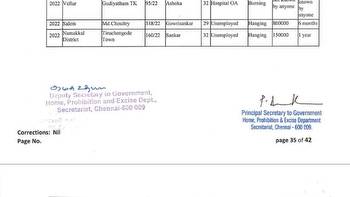

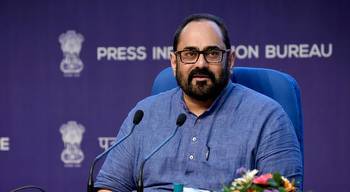
![[The Viewpoint] Online Gaming to follow New IT Rules](/img/di/the-viewpoint-online-gaming-to-follow-new-it-rules-1.jpg)


